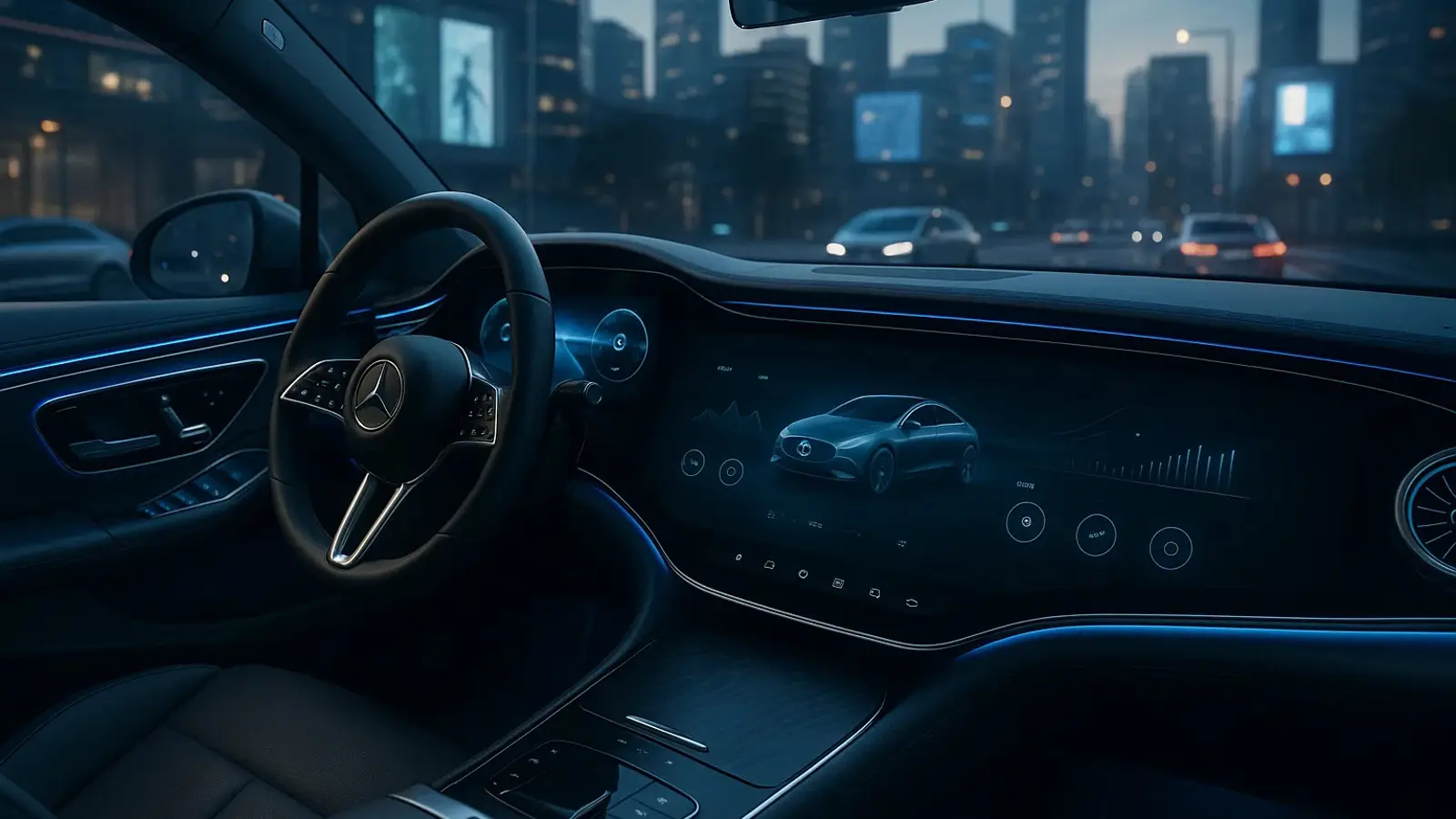Car subscriptions and digital ownership trends

Exploring how car subscriptions reshape ownership — insights from Mercedes-Benz, Stellantis, and the EU Data Act
To own or to access — that’s the question the car industry is asking itself right now. In ten years, a car key might feel as outdated as a DVD. The automobile is no longer just an object of ownership; it’s turning into a service — with subscriptions, updates, and screens that behave like your smartphone.
Stellantis is already cashing in on this shift. Its Free2move platform has nearly doubled its revenue year over year and now looks beyond 2025, aiming to become a full mobility ecosystem. In Germany, startup FINN raised €1 billion in early 2025 to expand its all-inclusive car-subscription fleet — insurance, maintenance, taxes, even the freedom to switch cars whenever you want.
The real transformation, however, is happening inside the vehicles themselves. Mercedes-Benz has turned the cabin into a digital playground, where drivers can activate features like ambient lighting, navigation upgrades, or sound profiles — all via subscription. Volkswagen follows with its Functions on Demand system, while Tesla offers its FSD (Supervised) package as a monthly subscription — not yet in Europe, but already active across North America.
Europe, meanwhile, is rewriting the rulebook. The Data Act, in effect since September 12, 2025, ensures that vehicle-generated data no longer belongs solely to manufacturers. Owners and service providers can now access it under fair and transparent terms. This opens the door to entirely new service models — insurance, maintenance, even over-the-air upgrades — built around how a car is actually used.
Analysts say the car-subscription market is booming: expected to grow fivefold globally by 2030 and sixfold in Europe by 2033. Subscriptions are becoming a lifestyle choice — one tap, no long-term commitment, no parking headaches or resale worries. The car shifts from “mine” to “available.”
Still, the story isn’t one-directional. Programs like Care by Volvo have been paused, and Germany’s market is consolidating as weaker players exit. It’s clear that ownership isn’t vanishing — it’s evolving. The next decade will likely see both models coexist: one offering freedom without ties, the other offering control and security. And perhaps the true car of the future is the one you don’t have to own to feel that it’s yours.
Allen Garwin
2025, Oct 17 00:17


